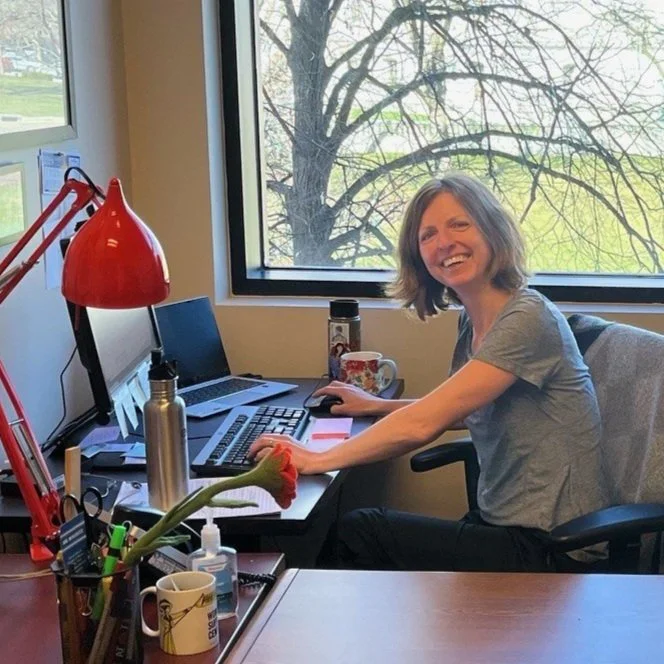Perspectives from the Bridge
Perspectives from the Bridge spotlights the experiences of individuals in the French history and Francophone studies community who work beyond the academy. It offers perspectives and helpful information for any considering a career outside of the professorate. Check out our first interviews below.
Jillian Slaight Managing Legislative Analyst at Wisconsin Legislative Reference Bureau Madison, Wisconsin
Jillian Slaight
Managing Legislative Analyst at Wisconsin Legislative Reference Bureau
Madison, Wisconsin.
What led you to pursue a PhD and did your motivations change as you progressed through the program?
Pursuing a PhD was not on my radar until I started doing hourly research for Lisa Jane Graham, my undergraduate thesis advisor at Haverford College. I enjoyed digging into eighteenth-century texts and writing my impressions of them, and Prof. Graham clued me in to the fact that I could do that as a profession! Engagement with primary sources continued to motivate me through my PhD program but so did teaching. Having never taught before, I enjoyed the challenge of presenting history to students in my undergrad and prison classes in a way that would stick with them in a meaningful way.
What was your initial experience on the academic job market, if applicable?
Both dispiriting and confidence boosting. On the one hand, I received only one invitation for a campus visit. On the other hand, the visit went really well. I enjoyed meeting prospective colleagues and students and felt proud of my performance. Unfortunately, the position was eliminated. Although I was invited to re-apply the next year, by then I realized that working in academia would not make me happy. Among other things, I love where I live (Madison, WI). It was hard to imagine living without miles of bike paths, many amazing bakeries, and friends and family nearby. (Mostly bakeries though!) And I had landed an intellectually fulfilling job in the interim.
How did you ultimately make your way into your current position, or and/sector?
Before completing my PhD, I began reaching out to peers and mentors outside of academia to learn about their jobs. Another former PhD student who had taken a job with the Wisconsin Legislative Reference Bureau told me that her work there involved researching and writing on wide-ranging topics of government concern and that people (such as legislators, journalists, and policy advocates) read and relied on her work. That appealed to me, given that most of my academic work felt like it disappeared into the void after being completed. So I reached out to her manager for an informational interview, which resulted in a formal interview and eventually a job.
What do you enjoy about your current position, and/or sector? What, if anything, took time getting used to, or continues to be challenging?
I research wide-ranging issues and learn something new and interesting every day. Who were the first Black legislators in Wisconsin? How did the overturning of Roe affect the enforceability of abortion laws in Wisconsin? What powers do states grant their governors during a state of emergency, such as the COVID-19 pandemic? In answering these questions, I collaborate with colleagues who are smart and funny. In the beginning, working eight hours in a single location was a struggle. (I was accustomed to a regular change of scenery between my home, various libraries, and the history department TA offices.) But now I appreciate the fact that my work stays at the office and (mostly) doesn’t seep into my time at home.
Reflecting on the career path you ultimately took, what do you wish you had learned or done otherwise in graduate school?
I was fortunate to gain some work experiences outside of being a teaching assistant or project assistant: working at the university archives, freelancing for the university communications department, and participating in a prison education program. Those experiences helped me practice applying the skills gained during the PhD in different contexts that might be relevant to careers outside of academia. As important, those experiences helped me realize that I might enjoy or even prefer a career outside of academia. In retrospect, it might have been worthwhile to spend more time pursuing opportunities like these (and less time chasing grant applications, for example). But everything worked out in the end. The important thing to me was to feel happy and successful, regardless of the professional field I pursued.



